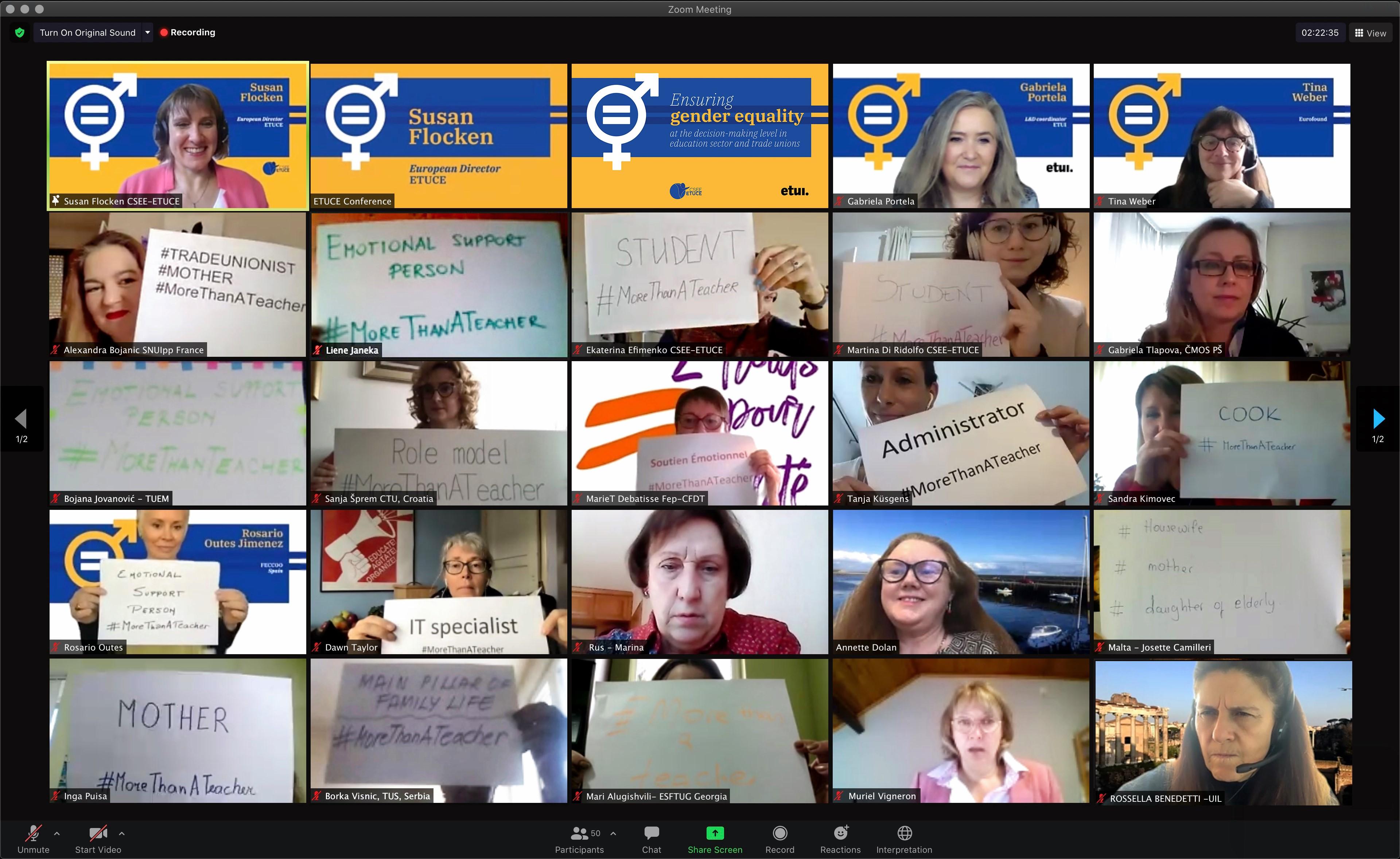Gender equality in the education and trade union sectors’ decision-making positions is a priority!
Published:
Over 35 trade union experts on gender equality from all across Europe attended the one-day joint ETUI-ETUCE training programme “Ensuring gender equality at the decision-making level in education sector and trade unions’ on 5 March 2021. During the training, participants discussed how to enhance the representation and participation of women in leadership and decision-making in all education sectors and research and within trade unions’ structures, including the implementation of the ETUCE Action Plan on Gender Equality (2020).
Gender inequalities remain a persistent issue in our economy and society, and the education and trade union sectors make no exception. Despite women constituting the majority of workers in the education sector in Europe, they are under-represented in leadership and decision-making positions. Training participant discussed the complex issue of gender horizontal segregation and obstacles faced by female teachers, academics and other education personnel and female trade unionists in their career progression. Tina Weber, expert speaker from Eurofound presented insights on gender equality in the labour market. According to the Eurofound report “Women, men and working conditions in Europe”, the main challenges for women in the labour market are related to segregation in the sectors of occupation, part-time and fixed-term contracts, as well as the gender pay gap and disproportionate responsibility for unpaid domestic and caring work. The COVID-19 crisis further exacerbated all gender inequalities and gaps.
Opening the event, ETUCE Director Susan Flocken, said “The impact of the COVID-19 pandemic on gender equality impels women teachers and unionists to raise their voice and lead the way for an equal and inclusive recovery. Education trade unions play a crucial role in fostering this revolution. We need to act together to empower and inspire female trade unionists and support them by providing professional support and necessary leadership skills”.
Discussing in plenary and breakout sessions, participants shared numerous good practices in support of female education personnel and unionists. Member organisations’ initiatives to encourage women unionists to take up leadership roles within the union structure include the creation of internal bodies working on equality topics and women committees as well training to encourage and support women to join decision-making positions. To foster gender equality in leadership positions in education, unions implement various initiatives to ensure a healthy work-life balance for women in the education sector, to ensure respectful working conditions for pregnant teachers, to introduce national gender quotas in decision-making bodies, to increase public funding on fighting gender-based violence, an to provide data on the gender pay gap.
Promoting female leaders’ role models, bringing men onboard in the fight for gender equality, changing the mentality in the society by changing the narrative on gender equality issues, as well as disseminating data and findings on gender inequalities were also mentioned as priorities.
Presentations